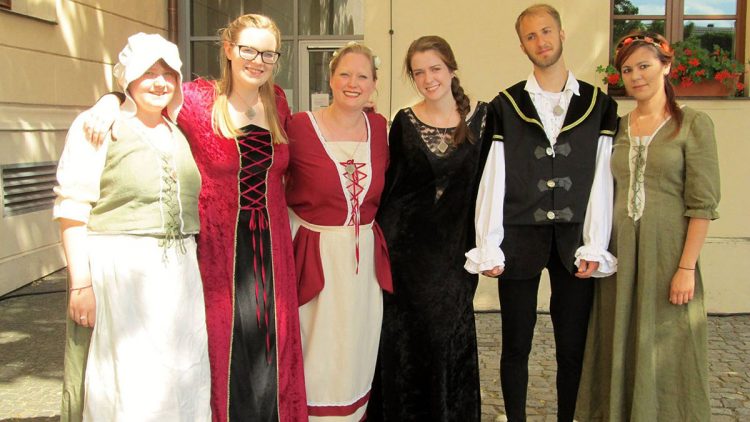One of the main cultural languages of the Western world, German is the native language of more than 90 million people worldwide.
It is the official language of Germany, Liechtenstein and Austria, and one of the official languages of Switzerland.
“German has a reputation for being difficult, but it’s actually not more difficult than any other languages,” said Dr. Judith Martin, professor of modern and classical languages at Missouri State University.
Practice a few words and phrases
- ich (ikh) – I
- du/Sie (doo/zee) – You
- gut (goot) – Good
- schlecht (shlekht) – Bad
- Guten tag (goot-en tahk) – Good day
- Auf wiedersehen (owf vee-dair-zayn) – Goodbye
- Bitte (bih-tuh) – Please
- Danke (dahn-kuh) – Thank you
- Bitteschön (bih-tuh-shoon) – You’re welcome
- Wo ist die Toilette? (vo ist dee toy-let-teh) – Where is the toilet?
- Könnten Sie mir bitte helfen (coon-tun zee meer bih-tuh hell-fen) – Could you help me, please?
When in Germany
If you’re traveling to Germany, it is a good practice to start out speaking to locals in German.
“You never know if the person you’re speaking with speaks English and assuming is never a great idea because it’s a little bit rude,” said Kelly Schlinder, coordinator of the Foreign Language Institute (FLI) at MSU. “While you’re traveling in another country, you should want to learn more about their language and culture because it’s exciting and people love it when you show them you care.”
Further learning
Missouri State offers a German major and minor through the department of modern and classical languages.
The FLI has noncredit and for credit courses that focus on basic to intermediate conversation skills and culture related to the German language.
For more information, contact Schlinder at 417-836-5497.


Leave a Reply